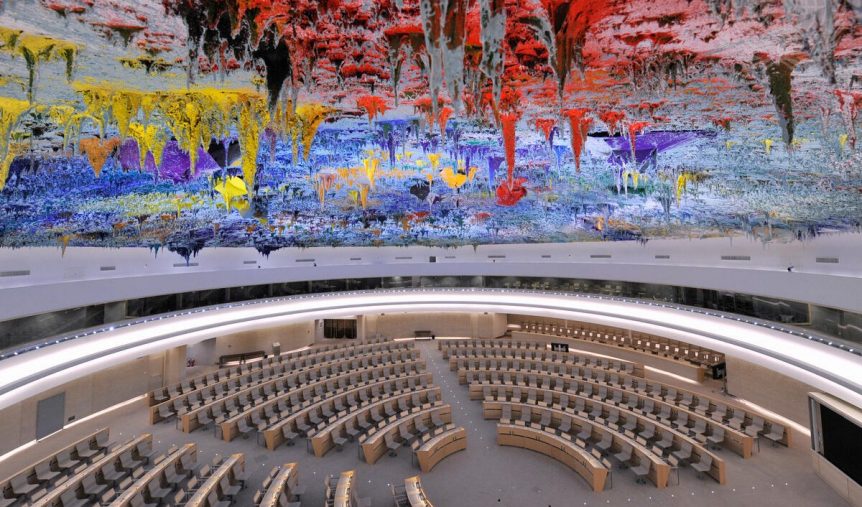The Cairo Institute for Human Rights Studies (CIHRS) expressed profound concern over the increasing abandonment of victims of wide-spread and severe human rights violations throughout the MENA region and wider world, as well as resurgent attacks against universal human rights standards at the United Nations (UN) Human Rights Council (the Council).
According to Jeremie Smith of CIHRS, “This Council session we watched as the government of Libya and the African Group put forth an absurd resolution that congratulated Libyan authorities on human rights progress while completely ignoring the atrocities and brutal rights violations that continue to be inflicted on Libyans and African migrants by both government and government-affiliated actors.”
Speaking at the Council, CIHRS noted that the resolution on Libya fails to address the urgent need to end impunity for widespread human rights abuses, disregards the findings of the former Independent Fact-Finding Mission on Libya, which documented probable war crimes and crimes against humanity by State security forces and armed militia groups, neglects the need to establish an independent international investigatory mechanism, and completely ignores severe repression of civil society through arbitrary arrests, enforced disappearances, abductions, social media monitoring, harassment, and other forms of intimidation. At an event on the sidelines of the Council, Libyan and international NGOs called for the reestablishment of an international investigation on Libya.
The Council also failed to take adequate action to protect victims of genocidal violence in Sudan and Gaza, and remained silent on critical rights situations in Egypt, Saudi Arabia, Yemen and a growing number of other human rights crises throughout the world.
At the same session, a multitude of attempts were made to undermine the universality of the international human rights framework, including concerted efforts to dilute language in resolutions on women’s and girls’ rights, and to weaken the application of standards on peaceful protests in conflict situations.
In a joint statement with NGOs, CIHRS deplored the double standards and selectivity by states in applying international law to ensure accountability for and protect victims from atrocity crimes, including initiatives and threats by some states to undermine or sanction the vital work of international justice and accountability bodies, including the International Court of Justice (ICJ) and the International Criminal Court (ICC).
According to NGOs, “These actions erode the integrity of the human rights framework, the legitimacy of these institutions, and the credibility of the States involved. From Afghanistan to China, Eritrea to Myanmar, Palestine to Sri Lanka, Sudan to Ukraine, addressing grave violations requires States to tackle root causes and apply human rights norms consistently and in a principled manner.”
During the Universal Periodic Review adoption of Saudi Arabia, CIHRS called on states to refrain from voting for Saudi Arabia to become a member of the Council, citing the government’s refusal to end attacks against and imprisonment of human rights defenders, its rejection of the principle of equality for women, and its continuing crackdown on almost all forms of freedom of expression and other fundamental rights.
During a debate with the UN Commission of Inquiry on Syria, CIHRS denounced the actions of Arab and European states whose policies towards Syrian refugees have increasingly resulted in the return of refugees to Syria where they are likely to suffer abuses by the Syrian government and other actors.
In collaboration with the Yemeni Coalition for Human Rights, CIHRS held an event during the latest Human Rights Council Session, focusing on a national civil society campaign to “Open the Roads.” The event highlighted the impact of road closures in Yemen on the distribution of humanitarian aid, access to medical treatment, and freedom of movement for everyone in Yemen. It also addressed the recent mass arbitrary arrests in Sanaa of NGO workers and international staff. CIHRS and its partners urged States to take immediate action to alleviate these humanitarian crises and support the freedom and rights of Yemeni citizens as well as to work for international accountability for ongoing violations in Yemen.
CIHRS also worked with Algerian partners to call for further action by the Council to address the ongoing crackdown on civil society and pro-democracy movements within the country in light of the recommendations provided by the UN Special Rapporteur on Freedom of Assembly and Association.
Share this Post

